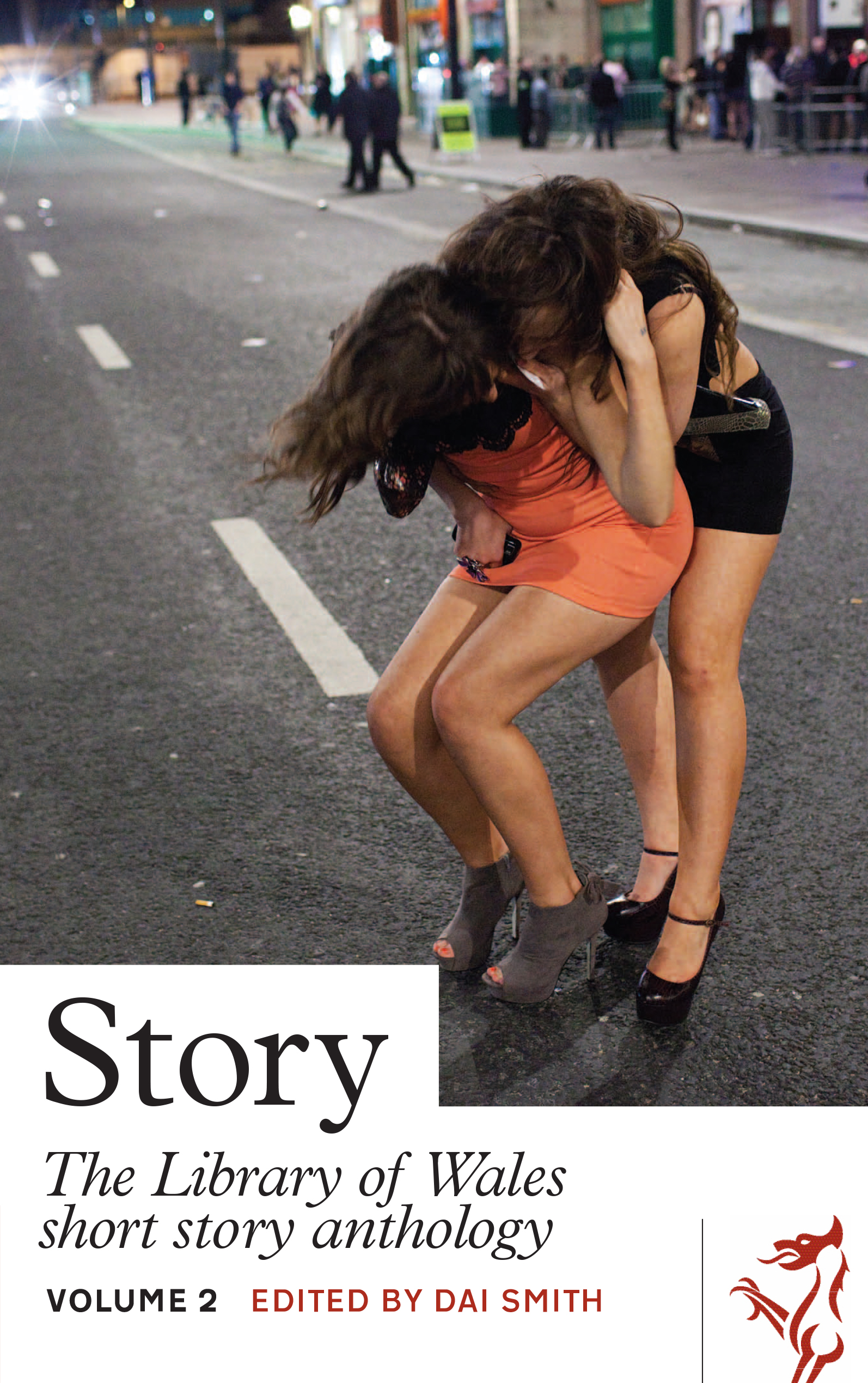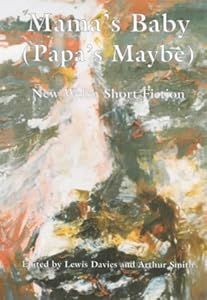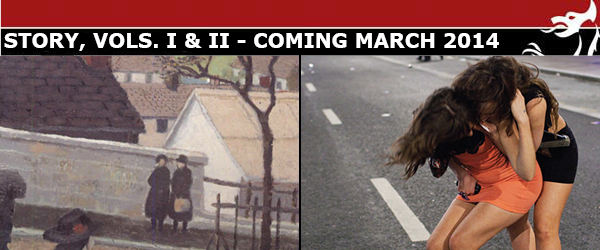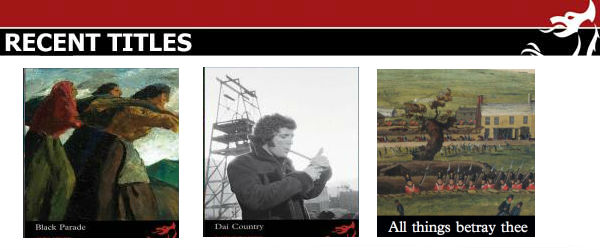Win the entire Library of Wales series in the 2015 M. Wynn Thomas Prize!
Dannie Abse 1923–2014
Dannie Abse

22 September 1923–28 September 2014
Title #39 in the Library of Wales series is revealed...
 small grocer and an uncertified schoolteacher. He spurned conventional education and left the valley, which was to be the basis of much of his work, at the age of nineteen, settling in London, which was to remain his base until he died.
small grocer and an uncertified schoolteacher. He spurned conventional education and left the valley, which was to be the basis of much of his work, at the age of nineteen, settling in London, which was to remain his base until he died. recounts the troubled life of Reuben Daniels, reared in a South Wales industrial valley, in the bosom of the Nonconformist culture. Therein lies his downfall and that of his people, for The Withered Root is as thoroughly opposed to Welsh Nonconformity as My People (Caradoc Evans), though for different reasons. Revivalist passions constitute nothing but a perverse outlet for an all too human sexuality which chapel culture has otherwise repressed. Nonconformity has withered the root of natural sexual well-being in the Welsh, and then feeds off the twisted fruits.
recounts the troubled life of Reuben Daniels, reared in a South Wales industrial valley, in the bosom of the Nonconformist culture. Therein lies his downfall and that of his people, for The Withered Root is as thoroughly opposed to Welsh Nonconformity as My People (Caradoc Evans), though for different reasons. Revivalist passions constitute nothing but a perverse outlet for an all too human sexuality which chapel culture has otherwise repressed. Nonconformity has withered the root of natural sexual well-being in the Welsh, and then feeds off the twisted fruits. early years as the Blaenclydach grocer’s son, his abhorrence of ‘chapel culture’, his bohemian years in Fitzrovia, his visit to the Lawrences in the south of France, his unremitting work ethic, his patrons, his admiration for the French and Russian writers who were his models, his love-hate relationship with the Rhondda, and above all, the dissembling that went into Print of a Hare’s Foot (1969), ‘an autobiographical beginning’, which he shows to be a most unreliable book from start to finish.
early years as the Blaenclydach grocer’s son, his abhorrence of ‘chapel culture’, his bohemian years in Fitzrovia, his visit to the Lawrences in the south of France, his unremitting work ethic, his patrons, his admiration for the French and Russian writers who were his models, his love-hate relationship with the Rhondda, and above all, the dissembling that went into Print of a Hare’s Foot (1969), ‘an autobiographical beginning’, which he shows to be a most unreliable book from start to finish.31 Stories in May at Hay!: Day 31 ‘The Conquered’ by Dorothy Edwards
Every day throughout May, you will be able to visit the Library of Wales website to download your free story, drawn from Story, vols I and II - a collection boasting the finest Welsh short fiction ever written and featuring some of the most talented literary names from both past and present, including the legendary Dylan Thomas and the award-winning Rachel Trezise, as well as read all about the chosen author.
Day 31: ‘The Conquered' by Dorothy Edwards
(Taken from Rhapsody, 1927)

Dorothy Edwards was born in 1903 in Ogmore Vale, a small mining community in Mid Glamorgan. Her father, an ardent socialist and Independent Labour Party leader, was the local school headmaster. Like her father, she was politically active, working for socialist and Welsh nationalist causes, although she always wrote in English. After a scholarship to Howell's School for Girls, Llandaf, she took a degree at Cardiff University in Greek and Philosophy, but literature was her passion and soon after graduating her short stories began to appear in magazines and journals. These were collected in Rhapsody(1927), along with several previously unpublished stories written during the nine months Edwards spent in Vienna and Florence. Her novel Winter Sonata (1928) followed shortly afterwards. She spent the following years trying to supplement her mother’s meagre pension by writing stories and articles for magazines and newspapers, and doing some extra-mural teaching at Cardiff University, but she never undertook full-time employment. After a brief period spent living in London with acquaintances from the’ Bloomsbury circle, Edwards committed suicide on a Cardiff railway line in 1934. A note left in her pocket at the time of her death read: ‘I am killing myself because I have never sincerely loved any human being all my life. I have accepted kindness and friendship and even love without gratitude, and given nothing in return.'
You can download the story in PDF format here. (If download does not start, then right click the link and select 'Save link as'.)
Selected bibliography
Rhapsody (Library of Wales, 2007)

Contributed to
Story I (anthology) (Library of Wales, 2014)

31 Stories in May at Hay!: Day 30 - ‘The Gift of Tongues’ by Arthur Machen




31 Stories in May at Hay!: Day 29 - 'Mama's Baby (Papa's Maybe)' by Leonora Brito
Every day throughout May, you will be able to visit the Library of Wales website to download your free story, drawn from Story, vols I and II - a collection boasting the finest Welsh short fiction ever written and featuring some of the most talented literary names from both past and present, including the legendary Dylan Thomas and the award-winning Rachel Trezise, as well as read all about the chosen author.
Day 29: 'Mama's Baby (Papa's Maybe)' by Leonora Brito
(Taken from Mama's Baby (Papa's Maybe): New Welsh Short Fiction, 1999)
Leonora Brito was born in Cardiff. She studied law and history at Cardiff University. Her story ‘Dat’s Love’ won her the 1991 Rhys Davies Short Story Competition. She also wrote for radio and television, providing a unique insight into Afro-Caribbean Welsh society, largely unrepresented in Welsh writing until her work appeared. She published one collection of stories, Dat’s Love, in 1995. She died in 2007.
You can download the story in PDF format here. (If download does not start, then right click the link and select 'Save link as'.)
Selected bibliography
Contributed to
Story II (anthology) (Library of Wales, 2014)
Urban Welsh: New Welsh Fiction (Parthian, 2005)


31 Stories in May at Hay!: Day 28 - 'They Came' by Alun Lewis
Every day throughout May, you will be able to visit the Library of Wales website to download your free story, drawn from Story, vols I and II - a collection boasting the finest Welsh short fiction ever written and featuring some of the most talented literary names from both past and present, including the legendary Dylan Thomas and the award-winning Rachel Trezise, as well as read all about the chosen author.
Day 28: 'They Came' by Alun Lewis
(Taken from The Last Inspection and Other Stories, 1942)

Alun Lewis was born on 1 July 1915 at Cwmaman, a mining village near Aberdare; both his parents were schoolteachers and his father later became the town’s Director of Education. The family took summer holidays at Penbryn in Cardiganshire, one of the poet’s favourite places. He was educated at Cowbridge Grammar School, the University College of Wales, Aberystwyth, where he read History, and at Manchester University. In 1938 he joined the staff of the Lewis Boys’ School, Pengam, enjoying a reputation as a gifted teacher, but in 1940, despite his pacifist convictions, resigned from the post and joined the Army as a commissioned officer. He found the life of the officers’ mess uncongenial, preferring the company of his men, most of whom were from the valleys of South Wales, but had time to resume the writing of poems and stories which he had begun while at school. In July 1941 he married Gweno Ellis, a teacher of German at Mountain Ash Grammar School. In the autumn of the following year his battalion of the South Wales Borderers was sent to India, where another period of intense literary activity began. The poverty and nihilism of India affected him deeply and he began to suffer bouts of the depression that had dogged him for several years. In January 1944 he went with his regiment to Chittagong in Burma. There, although an Intelligence Officer, he was given permission to move into a forward position facing the Japanese. On 5 March 1944 he was found shot in the head near the officers’ latrines; he died of his wounds six hours later. An Army court of inquiry concluded that his death was an accident, though the belief has persisted that he had taken his own life. Despite his comparatively small output – he published only ninety-four poems and twenty-five stories – Alun Lewis was recognized as an accomplished writer during his own short lifetime. Serious, idealistic, devoted to those he loved, particularly his wife, and intent on serving humanity as a writer, he was primarily concerned with what he called ‘the twin themes of life and death’, exploring them in verse and prose of a high order. His stories appeared in The Last Inspection (1943) and the posthumous volume In the Green Tree. His two collections of poems are Raiders’ Dawn (1942) and Ha! Ha! Among the Trumpets(1945); his Collected Poems (ed. Cary Archard) appeared in 1994 and a selection in the Corgi series in 2003. In everything he wrote there is compassion for the underdog, whether British soldier or Indian peasant, and a fine delight in the natural world, even in the parched landscapes of the sub-continent. His was a tragic vision, forced to early maturity by his military experience, and his death at the age of 28 was undoubtedly the single greatest loss sustained by Welsh letters during the Second World War.
You can download the story in PDF format here. (If download does not start, then right click the link and select 'Save link as'.)
Selected bibliography
In the Green Tree (Library of Wales, 2006)
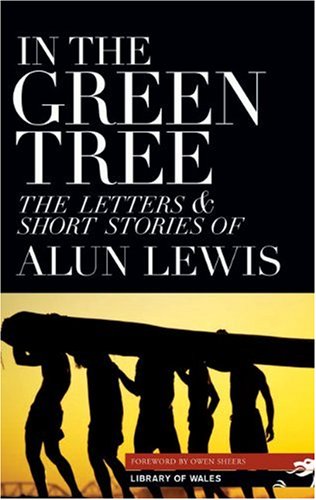
Contributed to
Story I (anthology) (Library of Wales, 2014)

31 Stories in May at Hay!: Day 27 - 'Chickens' by Rachel Trezise
Every day throughout May, you will be able to visit the Library of Wales website to download your free story, drawn from Story, vols I and II - a collection boasting the finest Welsh short fiction ever written and featuring some of the most talented literary names from both past and present, including the legendary Dylan Thomas and the award-winning Rachel Trezise, as well as read all about the chosen author.
Day 27: 'Chickens' by Rachel Trezise
(Taken from Fresh Apples, 2005)

Born in 1978 in Cwmparc in the Rhondda valley, South Wales, where she still lives, Rachel Trezise is, in the recent words of Richard Lewis Davies, Parthian Books' "big success". While attending the University of Glamorgan in Wales and University of Limerick in Ireland, she conceived, wrote and published her first novel, the semi-autobiographical In and Out of the Goldfish Bowl, in 2000. It recieved critical acclaim, and led to a place on the Orange Futures List in 2001 and Harpers & Queen proclaiming her the 'new face of literature' in 2003.
Her second book, a short story collection called Fresh Apples followed in 2005 and won the inaugural Dylan Thomas Prize, one of the world's richest literary awards, in 2006. Shortly after, Trezise took up writer's residence at the University of Texas, before returning home to research, write and publish her third book, Dial M for Merthyr, which charts her experiences on tour with the Welsh band Midasuno. Following two other releases with different publishers - Loose Connections (Accent Press, 2010) and Sixteen Shades of Crazy(Blue Door, 2010) - Trezise returned to Parthian in 2013 with her second collection: Cosmic Latte. Her work has been translated into several languages and has been published in Australia and New Zealand, Denmark and Italy.
She has also written for the stage and radio, with her first venture into theatre, 2007's I Sing of a Maiden, which featured interspersed performances by Charlotte Greig, playing to sell-out audiences across Wales. She also achieved success with her 2013 playTonypandymonium, which won the People’s Prize for Best Production (English language) at the Theatre Critics of Wales Awards. Her first radio play, Lemon Meringue Pie, was broadcast on BBC Radio 4's Afternoon Play slot in September 2008.
You can download the story in PDF format here. (If download does not start, then right click the link and select 'Save link as'.)
Selected bibliography
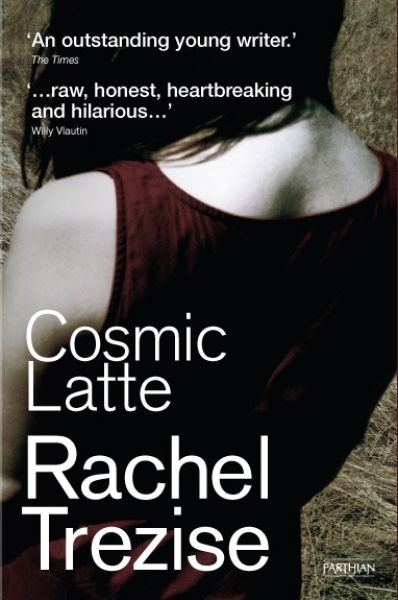







31 Stories in May at Hay!: Day 26 - 'Fresh Apples' by Rachel Trezise
Every day throughout May, you will be able to visit the Library of Wales website to download your free story, drawn from Story, vols I and II - a collection boasting the finest Welsh short fiction ever written and featuring some of the most talented literary names from both past and present, including the legendary Dylan Thomas and the award-winning Rachel Trezise, as well as read all about the chosen author.
Day 26: 'Fresh Apples' by Rachel Trezise
(Taken from Fresh Apples, 2005)

Born in 1978 in Cwmparc in the Rhondda valley, South Wales, where she still lives, Rachel Trezise is, in the recent words of Richard Lewis Davies, Parthian Books' "big success". While attending the University of Glamorgan in Wales and University of Limerick in Ireland, she conceived, wrote and published her first novel, the semi-autobiographical In and Out of the Goldfish Bowl, in 2000. It recieved critical acclaim, and led to a place on the Orange Futures List in 2001 and Harpers & Queen proclaiming her the 'new face of literature' in 2003.
You can download the story in PDF format here. (If download does not start, then right click the link and select 'Save link as'.)
Selected bibliography








31 Stories in May at Hay!: Day 25 - 'The Fare' by Lewis Davies
Every day throughout May, you will be able to visit the Library of Wales website to download your free story, drawn from Story, vols I and II - a collection boasting the finest Welsh short fiction ever written and featuring some of the most talented literary names from both past and present, including the legendary Dylan Thomas and the award-winning Rachel Trezise, as well as read all about the chosen author.
Day 25: 'The Fare' by Lewis Davies
(Taken from Love and Other Possibilities, 2008)

Born in 1967 in Penrhiwtyn, Lewis Davies is one of the founding partners of Parthian, as well as a successful author, poet, editor, playwright and essayist. The company was established in 1993 to publish his first novel Work, Sex and Rugby, and has now published over two hundred titles of which over 190 are still in print. Davies has been involved in the literary scene in Wales since 1990 and is the current commercial director of Parthian and the Library of Wales series.
You can download the story in PDF format here. (If download does not start, then right click the link and select 'Save link as'.)
Selected bibliography
Love and Other Possibilities (Parthian, 2008)
Football (Parthian, 2004)
As I Was a Boy Fishing: Selected Essays (Parthian, 2003)
My Piece of Happiness (Parthian, 1999)
Freeways: a Journey West on Route 66 (Parthian, 1997)
Tree of Crows (Parthian, 1996)
Work, Sex and Rugby (Parthian, 1993)
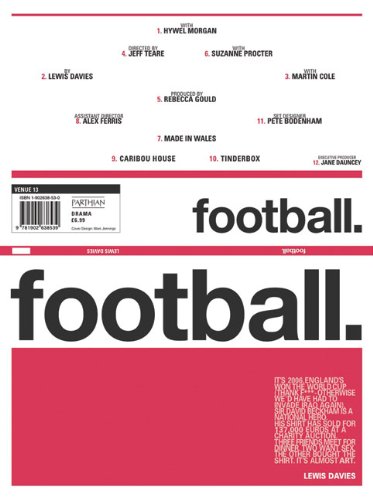
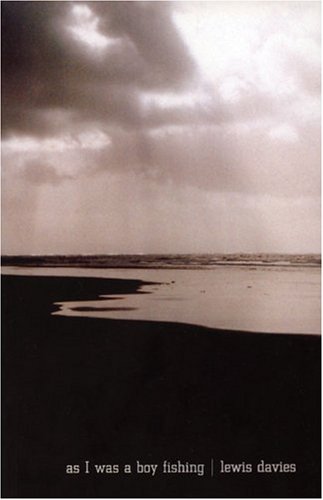
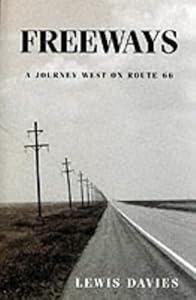

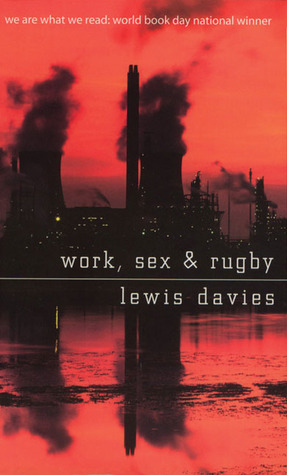
For children
Tai and Troll Take a Day-trip to Tenby / Tai a'r Trol yn Mynd am y Dydd i Ddinbych-y-Pysgod (Parthian, 2010)
Tai, Troll and the Black and White Cow / Tai, Trol a'r Fuwch Ddu a Gwyn (Parthian, 2009)
Tai and the Tremorfa Troll / Tai a'r Throl Tremofra (Parthian, 2007)

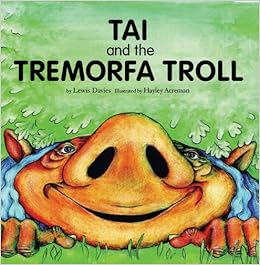
Plays
'Sickert, Supertramp and Jack the Ripper' (Equinox Theatre, Edinburgh Fringe Festival, 2010)
Contributed to
Story II (anthology) (Library of Wales, 2014)
Sport (Libray of Wales, 2007)
Urban Welsh: New Welsh Short Fiction (editor) (Parthian, 2005)
Human Conditions: Parthian New Writing (editor) (Parthian, 2001)
Mama’s Baby (Papa’s Maybe): New Welsh Short Fiction (New Welsh Short Fiction) (editor with Arthur Smith) (Parthian, 1999)
